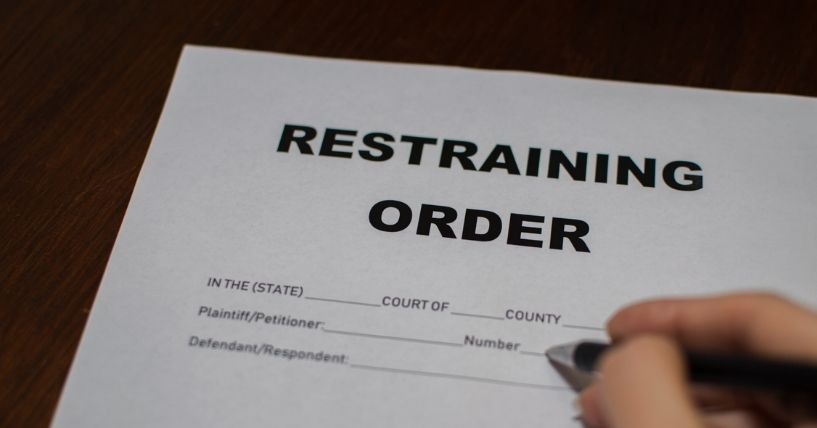
You may have heard about restraining orders in the different procedural cop shows or legal programs. However, the restraining orders in actual life differ a little from this make-believe world. It is an order that only a legal institution like a magistrate, police, or the court gives to stop someone from behaving in an offensive or prospectively harmful way towards you or your property. If you feel threatened or think your security is being violated- you should take out a restraining order.
Like all legal orders, this also has certain consequences on the violation: jail, fine, or both. To apply for a restraining order against someone or to get the deserved justice against a wrongly imposed one – you will need the help of a proficient criminal lawyer.
Types Of Restraining Orders
Restraining orders limit the offending person by restricting some of their actions that may be threatening to you – even approaching you or contacting you. The Restraining Order Act 1997 specifies the type of restraining orders and the situation they can be granted. The immediate restraining orders are of the following types:
According to section 6 of the Restraining Orders Act, 1997 – a violence restraining order (VRO) defends a person from abusive acts that include (but are not limited to) assault, destruction of property, kidnapping, menacing or frightening behaviour. The order is effective for any person other than a family member. It is essentially a brief document identifying the parties and the inhibited actions of the person bound by the VRO.
The applicant has to apply for a VRO to obtain it personally. In some situations, a police officer can apply for a VRO for the applicant; however, if issued, it is called a Police Order and has a similar effect to a VRO for 72 hours only.
As per the name, this restraining order is effective against family members. A person can get legal protection from family members by this restraining order – it covers the incidence of violence, threats of violence, any coercing and controlling behaviour, or activities that cause them to fear. An FVRO can be filed and acquired against a spouse, partner, ex-partner, brother, sister, grandparent, or other family members.
The applicant can use a Misconduct Restraining Order (MRO) in instances where another person’s behaviour towards you falls short of physical violence but still makes you feel intimidated, cause damage to your property, or involves a breach of the peace. In such applications, the accuser must convince the court that such an Order is necessary.
The court will consider the consequences of the other person’s behavior on you and balance that against their right (if any) to do those particular acts. The Court process for an MRO application is similar to that for a VRO. At a Final Order Hearing, the Magistrate can grant a VRO even if the application was for an MRO.
The court will process an MRO application like that of a VRO application – incidentally, the Magistrate can change the MRO into a VRO at their discretion.
The Process Of Restraining Order Application
The court plays an important role in the awarding of the restraining order. There are intricate points to fulfil – to satisfy the Magistrate of the need for a restraining order; it is best to employ the most experienced criminal defence lawyers Perth for your case. Across the Australian courts, the process of the restraining order application stands as follows:
Points Considered By The Court
In the final stages of the application, the applicant will have to convince the Magistrate that the restraining order is necessary to protect them from the accuser. According to section 11 of the Restraining Orders Act 1997 – the court may grant a restraining order if the accuser has committed an abusive act against you and will do so again if they are not restrained.
Moreover, if the applicant has a valid reservation that the accuser will conduct the abusive act – the court can order a VRO. Still, the applicant has to convince the court about the order’s appropriateness in particular circumstances.
The Penalties When The Order Is Breached
It is a felony to defy the terms of a standing restraining order, although it will not appear in the records of the accuser. If the accused breaches any of the not-allowed conditions mentioned in the order, the applicant can report to the police.
According to section 61 of the Restraining Order Act, the penalty for breaching a restraining order can reach up to 6000, jail for two years, or both. If a child becomes involved with the defiance, the charge will be considered more serious. So, it is better to stay away from the applicant during the validity period, even if they invite the applicant.
Otherwise, if the applicant needs representation or proficient legal help – they should contact the most recommended Restraining Order Lawyer Perth.